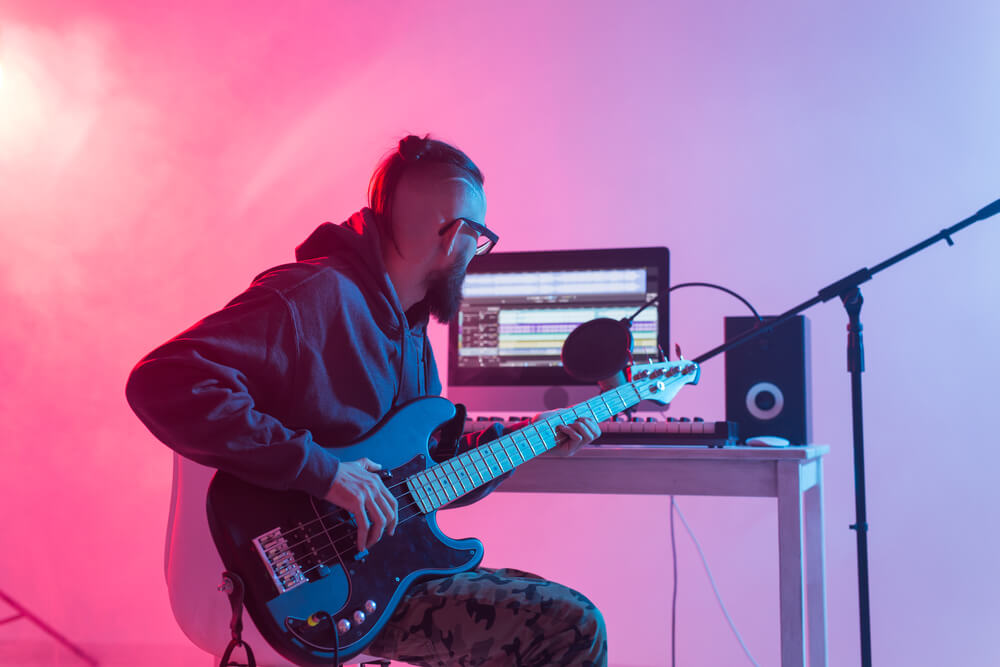Generative AI has arrived. We’ve seen this technology take creative domains by storm, and music production is no different. AI is quickly revolutionizing the way music is consumed and produced.
Unlike most technological waves, progress can be measured in days or weeks instead of months or years. With each passing week generative AI provides music producers with powerful tools for creating unique compositions.
AI music generators play an instrumental role in music production. Offering composers an unparalleled tool to explore different styles and genres, it pushes back against composition limits. AI music generators offer artists a novel means of creative exploration. One that saves both time and resources while producing top-tier songs.
As AI continues to advance, music producers are already turning to it as an indispensable tool. AI music generators enable producers to create new musical ideas quickly and efficiently. This is an invaluable asset in an industry that values creativity and innovation highly.
Furthermore, as these AI generators become more sophisticated, they’ll enable producers to explore different genres and styles. This pushes back against what we thought was possible within music production.
What Is Generative AI?
Generative AI is a type of artificial intelligence designed to generate new data. This can include texts, image generation, and music production. It uses machine learning models to analyze patterns in existing data sets and produce similar styles or structures. Generative AI can create music that sounds like it was composed by a human musician.
How Does Generative AI Work In Music Production?
Generative AI for music production works by identifying patterns in existing musical data. It then uses these patterns to generate similar-sounding new music. Furthermore, AI algorithms can be trained on specific musicians’ styles so as to produce music in line with them.
AI music generators can create a wide range of music from classical to contemporary genres. It can produce music in any mood, from happy and upbeat, to melancholic. It can also mix multiple instrumentation styles and create anything from simple loops to full compositions.

Benefits of Using AI Music Generators
There are numerous advantages to utilizing this new technology in music production. The main advantage lies in aiding musicians in creating new musical ideas quickly and effortlessly. This can be especially helpful for musicians experiencing writer’s block or those looking to explore different musical styles.
AI music generators can also help musicians craft more personalized and tailored pieces of music to fit their own tastes and preferences. For instance, AI algorithms can be trained to generate new material suited specifically to each musical style or preference.
They can also help save both time and resources during the production process. Instead of spending hours creating original compositions from scratch, musicians can now use AI algorithms to quickly generate new music quickly and efficiently.
What is the impact of AI music generators on human creativity?
While AI music generators can be an incredibly helpful resource for music producers, they do not replace human creativity. Instead, AI generators should be seen as a tool used to augment and enhance our own human creativity. This is done by offering fresh musical ideas which can then be refined through traditional production techniques. Finding a balance between technology and your artistic vision should be key when using AI music generators.
How to Utilize AI Music Generators in Music Production
Using this new technology in your music production is a very simple process. The first step involves selecting the right platform that fits your musical preferences. Existing solutions can range dramatically in terms of genres offered and quality of output.
It is important to evaluate the music quality of each music generator. This way you are confident you are starting with the best output.
Here are few quick tips to follow when evaluating which AI music generator is right for you:
1. Avoid platforms that train on copyrighted material so that the ownership of your generations do not fall into question.
2. Avoid platforms that utilize musical loops, such as melody or instrument loops. This will result in tracks with the same melodic components which can jeopardize ownership of your creations.
3. Ensure you receive all of the appropriate files, like the track stems and MIDI. This way you can manipulate the output if desired.
The second step in using AI music generators is to begin generating music. This is as simple as selecting a few high-level parameters like your desired genre, sub-genre, key or speed (tempo). With this information, a new track will be created for you. You can then listen to the output to make sure what you’ve created is right for your project.
The final step is to edit and refine the music. After the generator has created a track that you are happy with, you can then manipulate it to reach your desired result.
Alternatively, you can release the track as-is with many AI music generators. However, you should understand their terms of use clearly to ensure you have the rights to use the track.
Overall, this process can be repeated very quickly. This allows music producers to dramatically scale up the number of tracks they are able to release.
Final Thoughts
Generative AI has arrived, and its impact in the music space will only increase with time. Those who take advantage of these incredible tools will have opportunities to distinguish themselves and expand their own capabilities. These AI music generator tools will have a bigger impact on the music industry than any innovation since. The time to get familiar with and use AI music generators is now.

